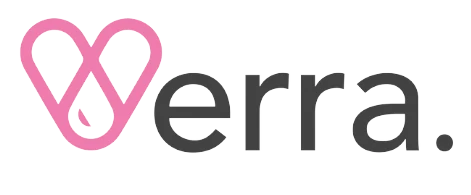Pregnancy is a beautiful, but at the same time very challenging period. We should take care of a sufficient amount of vitamins and minerals in every period. However, it is all the more necessary to focus on these components during pregnancy, when their need increases.
A balanced diet is the basis, but covering a sufficient amount of all nutrients can be a considerable challenge - even more so at the beginning of pregnancy, when many women suffer from pregnancy sickness. Therefore, it is possible to help yourself in this regard with the administration of selected food supplements. Well-known necessary substances include, for example, folic acid or magnesium. Today we will also talk about other necessary vitamins and minerals.
1. Iron
The greatest consumption of iron begins during the second half of pregnancy. The expectant mother's blood volume increases, the fetus grows and develops. It has been found that pregnant women with sufficient iron intake have, for example, lower risk of anemia. Iron supplementation can thus help the mother and baby to thrive better.
2. Vitamin D
Vitamin D deficiency is generally large in our population. In addition, during pregnancy, its amount gradually decreases depending on its intake and the baby's needs. Its supplementation can thus reduce the risk of many complications. Vitamin D is also associated with a lower incidence of tooth enamel defects, attention deficit hyperactivity disorder and autism. Pregnant women should supplement with 15 mcg of vitamin D3.
3. Omega-3
Eicosapentaenoic acid (EPA) and docosahexaenoic acid (DHA) are omega-3. They are essential fatty acids that the human body cannot produce on its own. However, there is generally a lack of them in our diet, which is why it is often essential to take them in the form of food supplements. In pregnant women, omega-3 is of fundamental importance for the neurological development of the fetus. According to studies, however, they can also be important for the correct timing of pregnancy and the appropriate birth weight of the baby.
4. Iodine
Iodine is a naturally occurring element that is essential in the human body for the proper functioning of the thyroid gland. It is very essential for the production of thyroid hormones, which regulate the development of the brain and nervous system of the fetus. The amount of iodine in pregnant and lactating women improves in the long term, mainly thanks to the iodization of table salt. Salt iodization is the most effective way to supply iodine. Global population coverage of iodized salt increased from 20% in 1990 to approximately 70% in 2013, according to the WHO.
Verra team

List of used literature:
Thomas H Bothwell, Iron requirements in pregnancy and strategies to meet them, The American Journal of Clinical Nutrition, Volume 72, Issue 1, July 2000, Pages 257S–264S, https://doi.org/10.1093/ajcn/72.1.257S
Michael K. Georgieff, Iron deficiency in pregnancy, American Journal of Obstetrics and Gynecology, Volume 223, Issue 4, 2020, Pages 516-524, ISSN 0002-9378, https://doi.org/10.1016/j.ajog.2020.03 .006.
Peña‐Rosas JP, De‐Regil LM, Garcia‐Casal MN, Dowswell T. Daily oral iron supplementation during pregnancy. Cochrane Database of Systematic Reviews 2015, Issue 7. Art. No.: CD004736. DOI: 10.1002/14651858.CD004736.pub5. Accessed 22 November 2021.
Mother To Baby | Fact Sheets [Internet]. Brentwood (TN): Organization of Teratology Information Specialists (OTIS); 1994-. Iodine. 2021 May 1. Available from: https://www.ncbi.nlm.nih.gov/books/NBK582771/
Iodine in pregnancy and lactation. Online. WHO. Available from: https://www.who.int/tools/elena/bbc/iodine-pregnancy.
Pérez-López FR, Pilz S, Chedraui P. Vitamin D supplementation during pregnancy: an overview. Curr Opin Obstet Gynecol. 2020 Oct;32(5):316-321. doi: 10.1097/GCO.0000000000000641. PMID: 32487800


